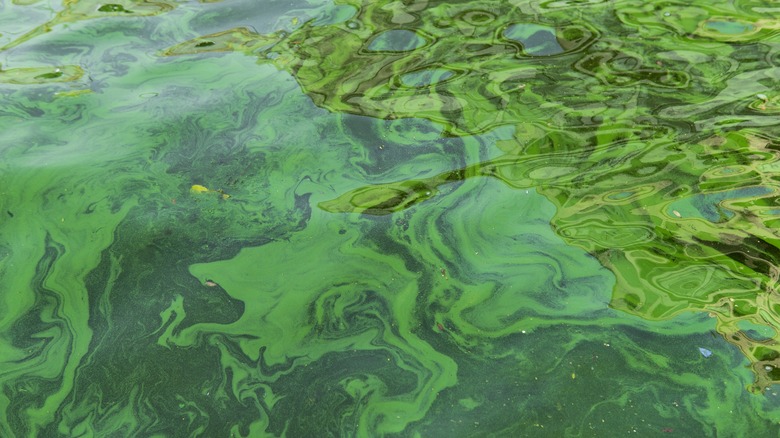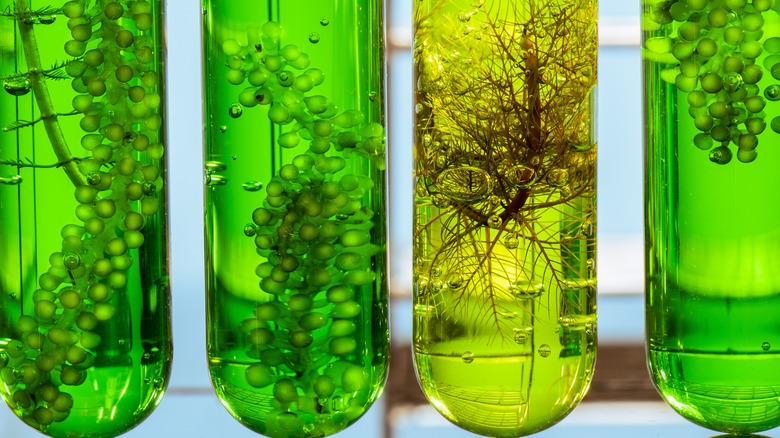How Algae Could Become The New Superfood
In the modern age, sitting down at the dinner table can be stressful. Most everyone has felt the effects of inflation on their wallets, and that's only one consideration among many. For example, have you thought about switching to meatless Mondays? The United Nations thinks that you should – the organization feels that a cultural switch towards a plant-based food culture could help mitigate the effects of the climate crisis and also address global hunger.
Two facets of food that should arguably be among the most important considerations that you have when shopping are an item's nutritional benefits and the sustainability of its production. As the winter weather fades, you can mark your health checklist with spring superfoods like asparagus and blueberries. Finding sustainable foods is a trickier proposition. In the future, we may transition to eating protein sources like jellyfish and insects in order to mitigate the climatological effects of the agricultural industry. Algae, an unassuming aquatic plant, could very well be the perfect blend of sustainable and nutritious — and it seems poised to become a widely available superfood.
Algae and the future of sustainability
The full extent of the agricultural industry's destructive impact on the environment is becoming more and more apparent every day. Algae could be a solution to the problems that are inherent in livestock cultivation. It is a plant, so algae feeds from the sun using photosynthesis, which eliminates the need for feeding your potential food source. A 2014 study, which was published in Progress in Natural Science, revealed that an algal field, in the course of a year, has the potential to create almost 167 times more usable biomass than an identically sized plot of corn. Furthermore, some types of algae are capable of heterotrophic growth, which is a type of non-photosynthetic growth that uses carbon or other chemicals in lieu of sunlight, thus making indoor algae production possible.
Algae isn't the only aquatic plant that is finding its way into food. Humans have been eating seaweed for thousands of years. The crop's versatility and sustainability could make seaweed farms the future of food.
The future of algae, a sustainable superfood
It's clear that algae is sustainable. However, if it is poised to become the future of food, you can rest assured with the knowledge that algae is as healthy as it is eco-friendly. Though they represent only a tiny fraction of the total number of algae types that populate our planet's waterways, there are a number of species of edible algae, each of which has a unique nutritional profile. Generally speaking, algae is high in protein. In fact, certain species can be well over 50% protein by body weight. Algae is also packed with antioxidants and vitamins. If that's not enough, the structure of algae on a cellular level makes it an effective tool in the kitchen, as it can be used to alter the consistency of other foods.
Whether or not you're currently eating algae, there's a good chance that you'll be snacking on the microscopic aquatic plant in relatively short order. It's already being used as a fat substitute, and it also serves as the base of the protein-dense ENERGYbits supplement. IFT even projects that the algae industry will grow to be worth $6.4 billion over the course of the next three years.


